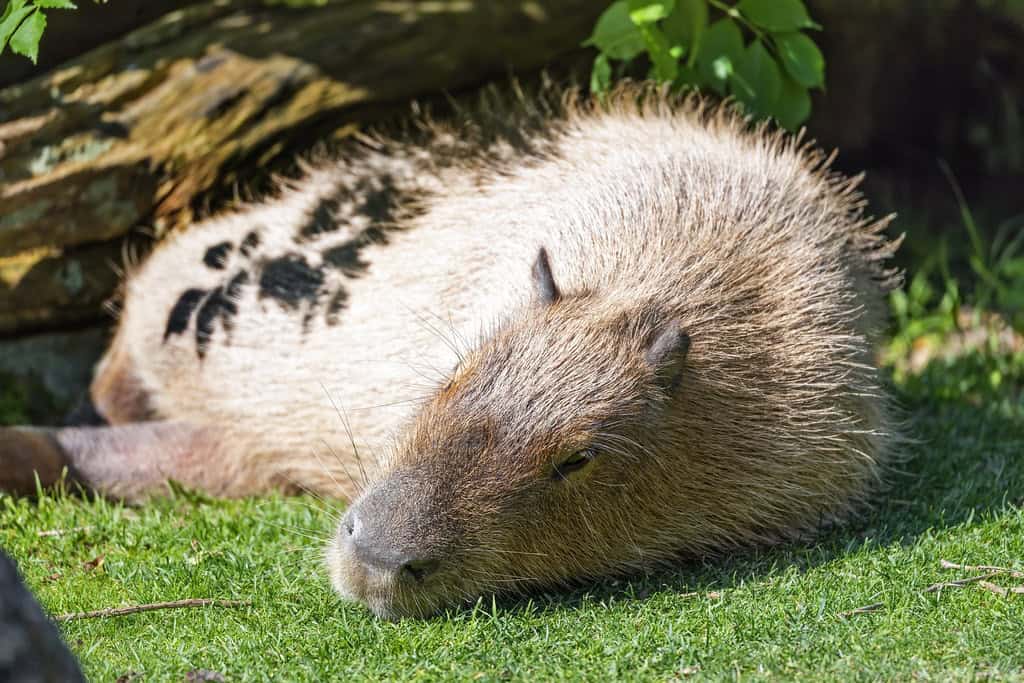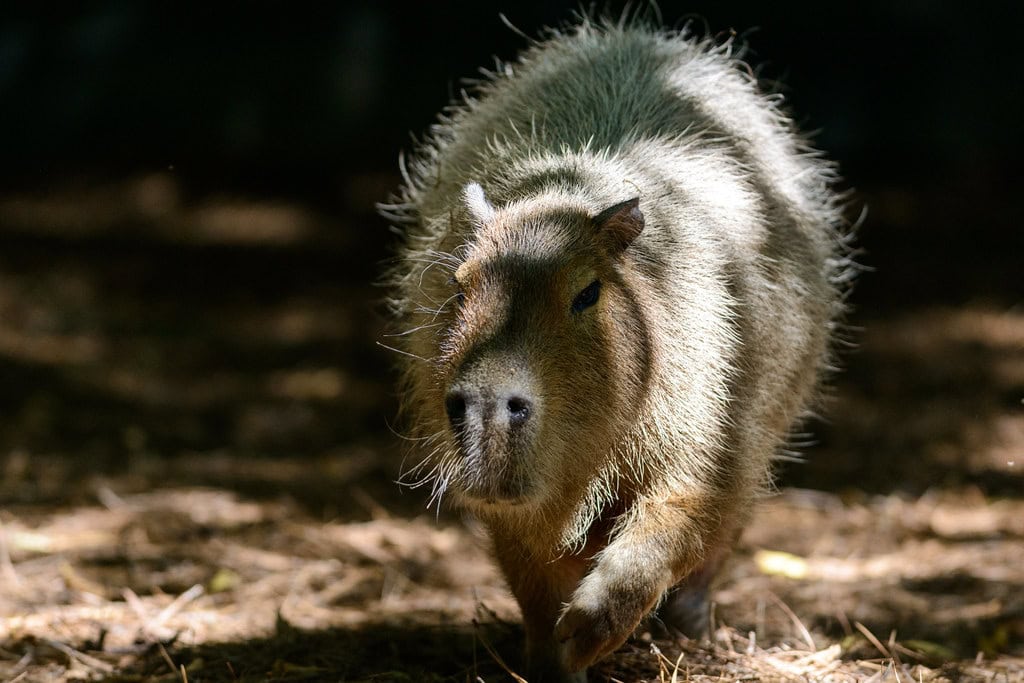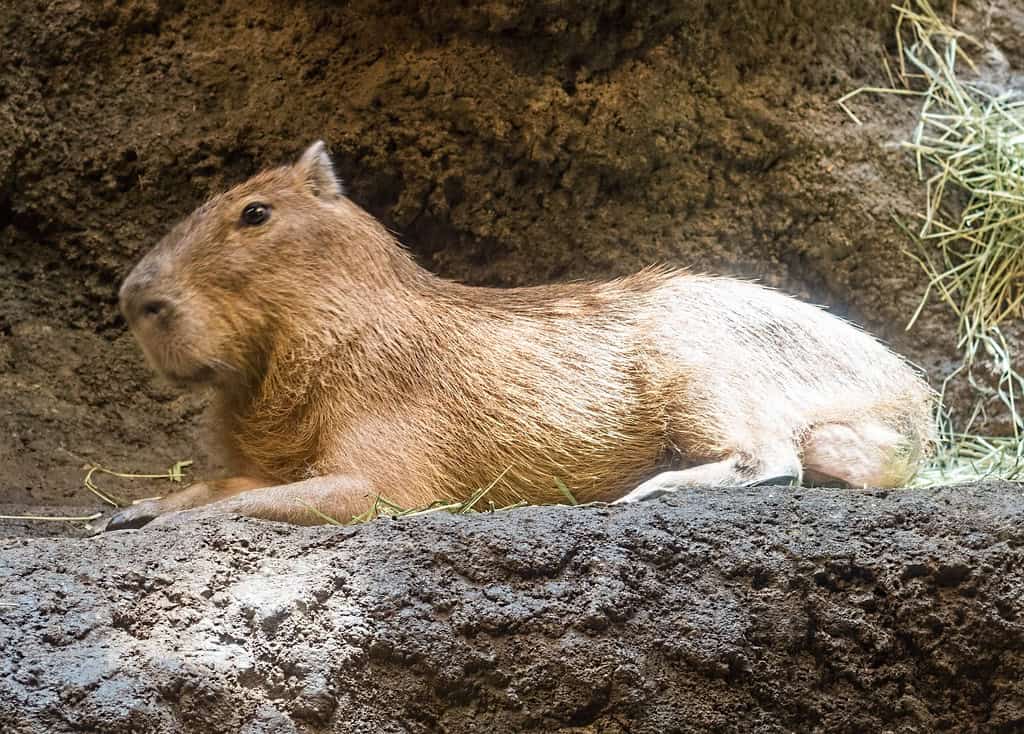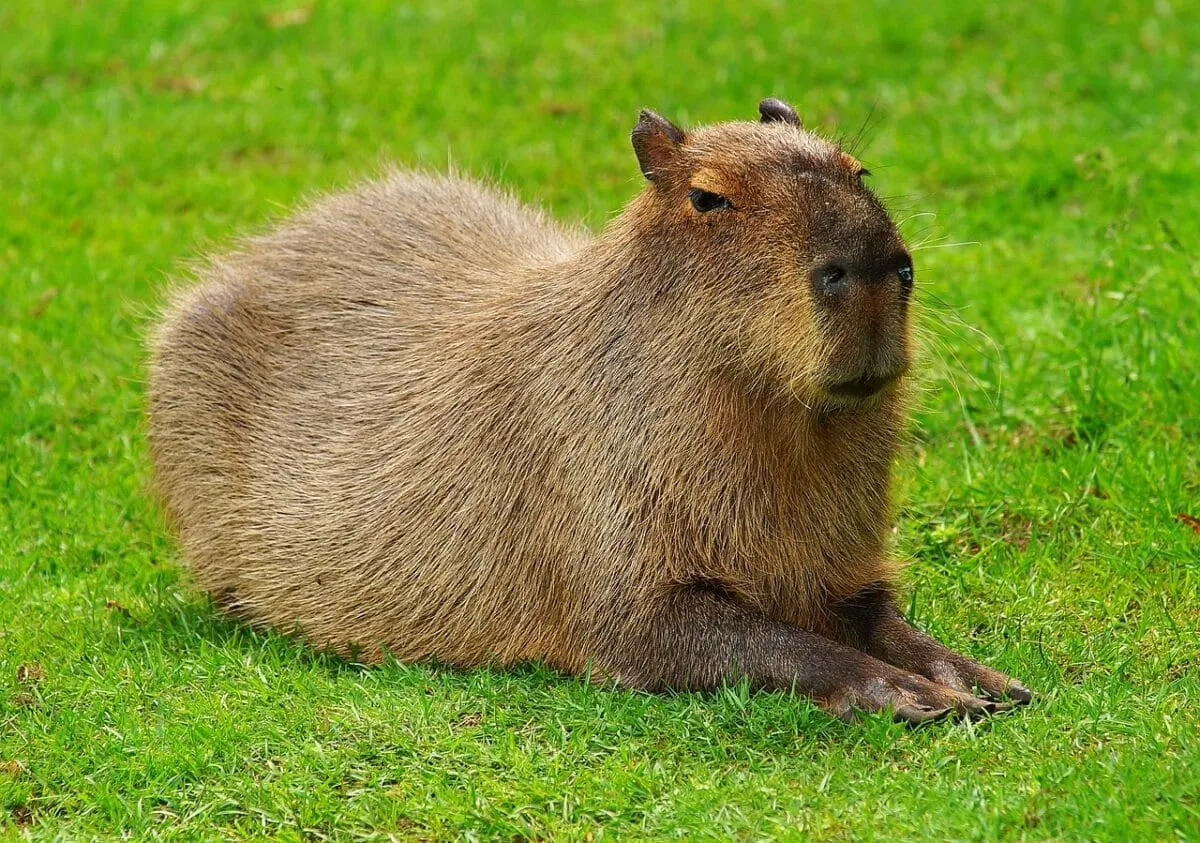Have you ever wondered what it feels like to gain the trust of the world’s largest rodent? Capybaras, those gentle giants from South America, are surprisingly social creatures that form deep bonds with both their own kind and humans. These peaceful animals have captured hearts worldwide with their zen-like demeanor and adorable appearance. When a capybara feels comfortable around you, they display fascinating behaviors that reveal their trust and acceptance. Understanding these subtle signs can transform your relationship with these remarkable creatures from mere observation to genuine connection.
11. They Allow You to Enter Their Personal Space

A comfortable capybara will let you approach within arm’s reach without showing any signs of stress or alarm. In the wild, these animals maintain careful distances from potential threats, so allowing human proximity is a significant gesture of trust. You’ll notice they don’t tense up, freeze, or prepare to flee when you move closer. Their body language remains relaxed, with soft eyes and a calm posture. This proximity tolerance often develops gradually over multiple interactions, making it an especially meaningful milestone in your relationship with the animal.
10. They Continue Eating When You’re Present

One of the clearest indicators of comfort is when a capybara continues their normal feeding routine while you’re nearby. Eating is a vulnerable activity for prey animals, requiring them to lower their guard and focus on food rather than potential dangers. When they munch on grass, vegetables, or hay without constantly looking up to check on you, it demonstrates profound trust. They might even eat from your hand if the relationship has progressed far enough. This behavior shows they’ve categorized you as safe rather than threatening, allowing them to maintain their natural feeding patterns in your presence.
9. They Show Relaxed Body Language Around You

A capybara at ease displays distinct physical cues that reveal their comfort level with your presence. Their ears remain in a neutral position rather than constantly swiveling to monitor sounds, and their muscles appear loose and unhurried. You’ll notice they don’t hold their head high in an alert posture but instead maintain a natural, relaxed stance. Their breathing becomes slow and steady, without the quick, shallow breaths associated with stress or fear. These subtle body language signals indicate they’ve accepted you as part of their safe environment rather than viewing you as a potential threat.
8. They Vocalize Softly in Your Presence

Capybaras communicate through various soft sounds, and hearing these gentle vocalizations around you is a positive sign of acceptance. They might produce quiet purring sounds, soft whistles, or low clicking noises that indicate contentment and social bonding. These aren’t alarm calls or distress signals, but rather the same peaceful sounds they make with their family groups. The frequency and variety of these vocalizations often increase as trust builds over time. Think of it like a cat’s purr – it’s their way of expressing satisfaction and comfort with the current situation.
7. They Engage in Self-Grooming Behaviors

When capybaras feel completely at ease, they’ll begin their regular grooming routines even while you’re watching. This includes scratching behind their ears, cleaning their paws, or smoothing down their coarse fur with their teeth. Grooming is an intimate activity that animals typically reserve for safe, private moments when they feel secure. If they’re comfortable enough to groom themselves in your presence, it means they trust you completely and don’t perceive any immediate threats. This behavior often occurs during quiet moments when they’re resting or after they’ve finished eating.
6. They Make Eye Contact Without Fear

Direct eye contact between humans and animals can sometimes signal aggression or challenge, but comfortable capybaras will look at you with soft, curious eyes. Their gaze appears friendly and interested rather than wary or defensive, and they don’t immediately look away when you meet their eyes. You might notice they watch your movements with genuine curiosity rather than suspicious alertness. This eye contact often feels peaceful and connecting, similar to the gentle gaze they share with other capybaras in their social group. It’s their way of acknowledging your presence without feeling threatened or submissive.
5. They Rest or Sleep Near You

Perhaps the ultimate sign of trust occurs when a capybara chooses to rest or even sleep in your vicinity. Sleep represents the most vulnerable state for any animal, requiring complete confidence in their safety and surroundings. They might settle down on the ground, close their eyes partially or fully, and enter that peaceful state that capybaras are famous for. Some might even lean against you or rest their head near your leg if the bond is particularly strong. This behavior indicates they’ve accepted you as a protective presence rather than a source of danger, treating you almost like a member of their family group.
4. They Approach You Voluntarily

A truly comfortable capybara will initiate contact by walking toward you rather than waiting for you to approach them. This voluntary approach demonstrates curiosity and positive association rather than mere tolerance of your presence. They might waddle over slowly, showing no signs of hesitation or fear, and may even seek out interaction or attention. This behavior often develops after numerous positive encounters where they’ve learned to associate you with pleasant experiences like feeding or gentle petting. The fact that they choose to close the distance themselves shows remarkable trust and comfort with your relationship.
3. They Allow Gentle Physical Contact

Touch represents one of the most intimate forms of interaction between species, and a comfortable capybara will permit gentle petting or scratching. They particularly enjoy being scratched behind the ears, along their neck, or on their chin – areas that feel good but are difficult for them to reach themselves. Their reaction to touch will be positive, perhaps leaning into your hand or making soft, contented sounds. They won’t flinch, pull away, or show signs of stress when you make gentle contact. This acceptance of physical interaction mirrors the grooming behaviors they share with other capybaras in their social groups.
2. They Include You in Their Social Activities

Capybaras are incredibly social animals, and including you in their daily activities represents a significant honor in their world. They might graze nearby while keeping you in their peripheral vision, or position themselves so you’re part of their small social circle. If there are multiple capybaras present, a comfortable individual might even seem to “introduce” you to the group through their calm, accepting behavior. They treat you as they would another capybara friend, acknowledging your presence as a welcome addition to their peaceful routine. This social inclusion often manifests as them simply going about their normal activities while ensuring you remain part of their immediate environment.
1. They Seek Out Your Attention and Interaction

The strongest sign of capybara comfort comes when they actively seek your attention and interaction, rather than simply tolerating your presence. They might nudge you gently with their nose, position themselves directly in front of you, or even make soft vocalizations to get your attention. Some particularly social capybaras will follow you around their enclosure or yard, wanting to be wherever you are. This attention-seeking behavior shows they’ve formed a genuine bond with you and actually enjoy your company. It’s the difference between acceptance and active friendship – they don’t just tolerate you, they genuinely want to spend time with you and engage in positive interactions.
Conclusion

Building trust with a capybara is a uniquely rewarding experience that requires patience, consistency, and respect for their gentle nature. These remarkable animals offer us a glimpse into peaceful coexistence when they choose to share their calm, zen-like presence with humans. Each sign of comfort represents a step deeper into their world of tranquil social bonds and simple pleasures. The journey from cautious observation to genuine friendship with a capybara teaches us valuable lessons about trust, patience, and the universal language of kindness that transcends species barriers. Have you ever experienced that magical moment when a wild animal decides you’re worth trusting?
- 14 Creatures That Can Freeze and Thaw Back to Life - August 9, 2025
- 10 Animals That Risked Their Lives to Save Humans - August 9, 2025
- 14 Reasons Why Bears Are Afraid of Humans (Most of the Time) - August 9, 2025

